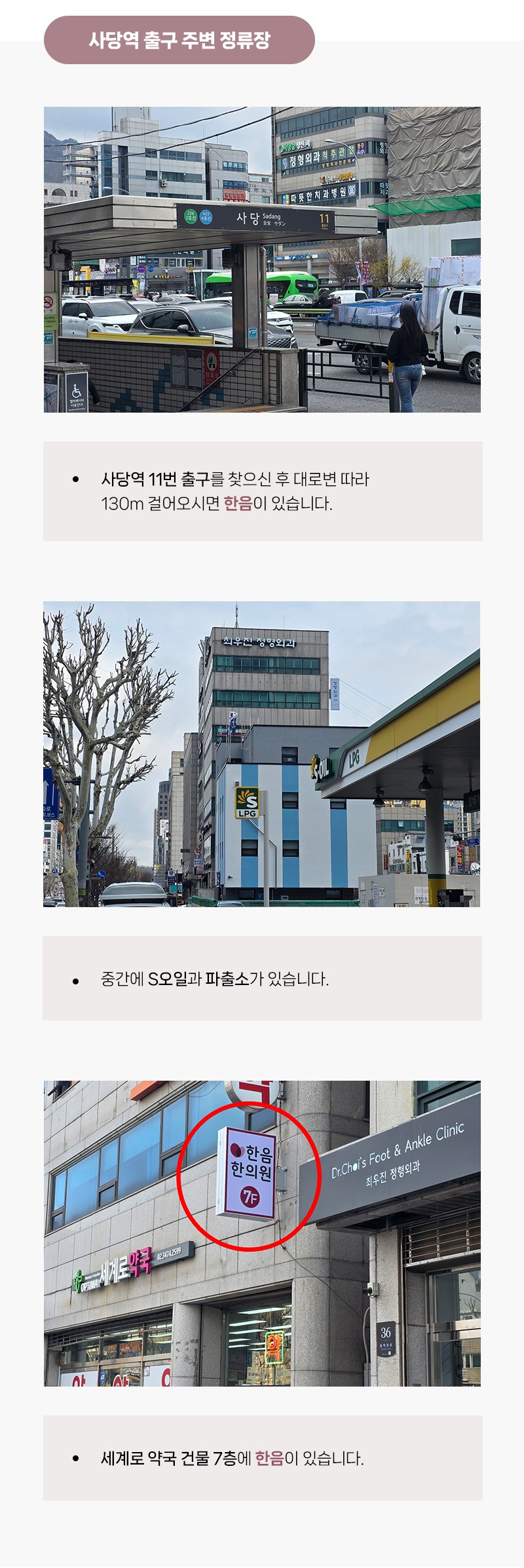Haneum
의학 논문
한음이 발표한 의학논문입니다.
공황장애의 한의학적 치료 효과 및 예측 인자 연구
초록
Objectives: The purpose of this study is to identify predictors of clinical efficacy of oriental medical treatment for patients with panic disorder.
Methods: We analyzed medical records of 41 patients who were diagnosed with panic disorder through DSM-IV or ICD-10 by 2 oriental medical neuro-psychiatrists.
We performed frequency analy-sis of demographic characteristics in patients with panic disorder, and assessed the correlation be-tween the psychological scales by Pearson correlation.
Repeated measures ANOVA were used to com-pare the psychological scales during the treatment;
and Single regression analysis was used to analyze the factors that have correlation to improvement of panic disorder by oriental medical treatment.
Psychological scales used in the study were STAI-X-1/2, STAXI-S/T, BDI2, BAI, BSQ, PAS, ASI, LOT-R, SWLS, LSES and LSMS.
Results: Patients’ demographic characteristics indicated that there were twice more female than male patients;
furthermore, there was a high ratio of patients in their 20s and 30s, with the highest percent-age of onset-age in the 20s and average duration of panic disorder from 1∼5 years.
More than half of the total patient cohort comprised of those who had panic disorder with agoraphobia and major de-pressive disorder;
in addition, major accompanied symptoms were dyspepsia, chest discomfort and headache.
After treatment, most scores of psychological scales were significantly reduced, and corre-lation between the psychological scales was significant.
Furthermore, we identified some factors that were significantly correlated to improvement of panic disorder by oriental medical treatment.
Conclusions: In conclusion, treatment of panic disorder with oriental medicine was clinically efficient and improved the quality of life.























